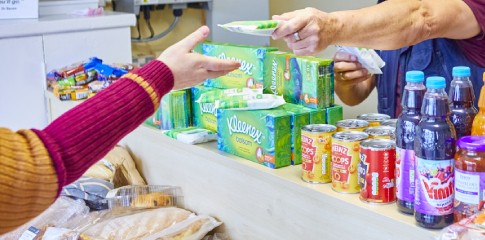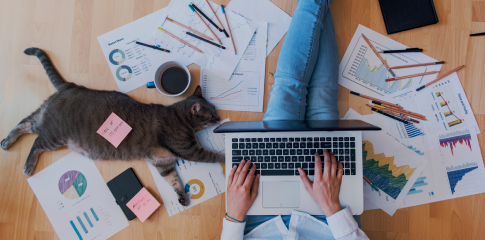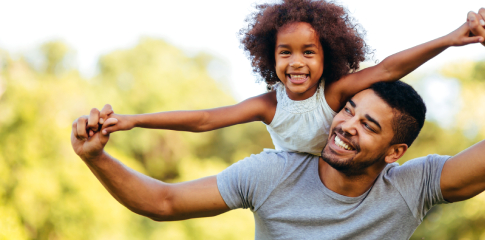2020 was a year of great uncertainty. Since the outbreak of COVID-19, we have slowly grown accustomed to the daily disruption. A recent 2020 report on the consumer hygiene trends and behaviours that have emerged from the COVID-19 pandemic suggests that we are collectively adapting our behaviour to accommodate and minimise the impact. Those of an optimistic mindset could be forgiven for thinking that the collective sacrifices all of us have made are winning the battle against COVID-19.
And it’s true that some good has come from the crisis so far. Evidence suggests that many of us are a little more community spirited than before, with a survey in April 2020 showing that 77% of UK adults thought people were doing more to help others since the pandemic started. More of us are talking to neighbours. We’re joining local WhatsApp groups. Even volunteering. Maybe one upside to the significant downside that is COVID-19 is an increased sense of togetherness.
We’re also much more knowledgeable about the role that personal hygiene and other preventive measures play. Since the outbreak began, studies suggest that we have been washing our hands far more frequently. Despite occasional images of packed beaches and parks to the contrary, the vast majority of us are sticking to social distancing guidelines. And according to a survey conducted in late-August 2020, more than 70% of us are now reaching for a facemask when leaving the house to jump on the train or pop to the shops. Given this survey was conducted after it became compulsory to wear masks on trains and in shops it would be easy to think that the reason why we are doing these things is because we have been told to. No doubt that’s true. But there is also something else motivating us to routinely adopt these out-of-the-ordinary behaviours. In June 2020, weeks before mask-wearing on trains became compulsory, many of us (20% according to one study) were routinely covering our face on public transport. By mid-July that figure almost doubled, again before mask-wearing was made mandatory in shops. While it is true that making mask-wearing the law led to its widespread adoption, millions were already doing so of their own accord, motivated by a sense of unity and togetherness.
Other cultures have long practiced this. In Japan, for example, people who wear masks are viewed as having a positive and respectful attitude not just to their own health, but to others’ health too. The same is true in other collective cultures, like Hong Kong. During the 2003 SARS outbreak there was a huge cultural shift in mask-wearing, with many believing that wearing a mask signalled respect and demonstrated responsibility to others. Even in countries that are considered more individualistic, like Canada, those who believe in civic duty are significantly more likely to adhere to social distancing. As an action that provides benefit to all, mask wearing is not only seen as the healthy thing to do. Increasingly, it’s the socially approved thing to do too.
But how long will this sense of we’re-all-in-this-together likely last? There are three things to bear in mind.
Firstly, it is important to maintain a sense of realism. Whilst we would like to believe that things are slowly returning to normal, COVID-19 will still be around us for the foreseeable future. Mask wearing not only helps to protect ourselves and others, it also serves as a pretty good visual reminder that we are not out of the woods yet.
Secondly, sustaining these changes will become increasingly challenging, especially given that we tend to overestimate how good we are at things. In the same way that most people think they are better-than-average drivers (in reality this is unlikely to be true), studies have shown that many people think they wash their hands more thoroughly than is the reality. Even healthcare workers, who you’d think would know better, fall into this trap.
Finally, we need to maintain the sense of unity that has played such an important role in our lives since the COVID-19 pandemic began by living up to the spirit of give and take. In the same way that others have been maintaining the ‘Hands; Face; Space’ mantra to help protect us, so we should do the try same for them.
After all, we are all in this together.
INFLUENCE AT WORK is a leading applied behavioural science consultancy that helps build communications programmes, rooted in behavioural science. Partnering with Kleenex®, they produced an insight-led report that identified wider trends and changes in consumer hygiene behaviour.
This article was written by Influence at Work in October 2020.











